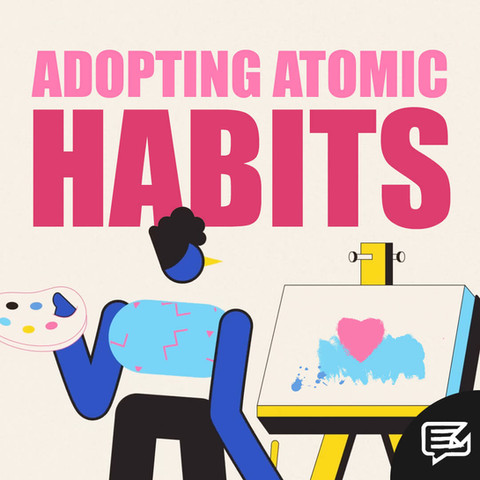
05.08.22
IT’S THE ‘FREAKONOMY’, STUPID
What do schoolteachers and sumo wrestlers have in common? It’s probably not a question you’ve had much cause to ponder until now. And if the question seems an unlikely one, you may be even more surprised to learn that, for Steven D. Levitt and Stephen J. Dubner, the answer can be found in economics. Or, to adopt the word they coined to title their seminal 2005 book and describe their field of study - ‘Freakonomics’.
All of us know that economics is important but, if we’re being honest, it’s not a topic that will set the pulse racing or fuel entertaining dinner party conversations for most of us. Step in Levitt and Dubner…



They’ve convinced me - as they have millions of others - that far from being a dry study of numbers and spreadsheets, economics can solve the riddles of everyday life and explain how the world works. As they explain:
“Since the science of economics is primarily a set of tools, as opposed to a subject matter, then no subject, however offbeat, need be beyond its reach.”
The concept of Freakonomics has really caught on since the publication of Levitt and Dubner’s 2005 book Freakonomics: A Rogue Economist Explores the Hidden Side of Everything. It has spawned sequels, a feature film and a successful blog and podcast.
Levitt and Dubner changed the way people look at the world by putting the study of incentives under the spotlight. They argue:
“Incentives are the cornerstone of modern life. And understanding them – or, often, ferreting them out – is the key to solving just about any riddle, from violent crime to sports cheating to online dating.”
This might sound obvious on the face of it. Whether it’s the promise of a free gift for filling out a survey or the threat of a fine if I’m late returning my copy of Freakonomics to the library, we’re accustomed to navigating the vast array of incentives used by those wanting to influence our behaviour.
However, dig a little deeper and things start to get really interesting. What if us humans aren’t that easy to manipulate and don’t respond as anticipated? What if some people will always find a loophole to cheat their way around these incentives?
Take, for instance, a case of late pickups from a childcare centre. You might expect that fining parents for being late collecting their children at the end of the day would encourage them to be on time. But you’d be wrong. A study by economists in Israel found that the introduction of a $3 fine actually led to a doubling in the number of parents showing up late.
Levitt and Dubner explain:
“One problem may have been that the amount was not big enough, signalling to the parents that late pick-ups were not a significant problem. The main issue, however, was that this small economic disincentive replaced an existing moral disincentive: the guilt parents felt when arriving late. Parents could now effectively buy off their guilt for a few dollars, so they were less worried about being late. Furthermore, once the signal had been sent, the effect could not be undone. The removal of the fines had no remedial effect on the number of late pick-ups.”
Remember those schoolteachers and sumo wrestlers I mentioned earlier? The thing they have in common, according to our Freakonomists, is cheating. They argue that for every clever person who creates an incentive scheme, there is an army of clever people who will spend even more time trying to beat it.
In the mid-1990s, the Chicago Public School system embraced high stakes testing. Schools with low reading scores were punished by being placed on probation and threatened with closure. This raised the stakes for teachers who may have been passed over for promotions, reassigned or even dismissed if their classes performed poorly in tests. The high stakes testing policy also presented some positive incentives – when it was in operation in California, teachers could earn a $25,000 bonus if their class test scores were particularly high.
The result?
“An analysis of the entire Chicago data revealed evidence of teacher cheating in more than two hundred classrooms per year, roughly 5 percent of the total. This is a conservative estimate, since the algorithm was able to identify only the most egregious form of cheating – changing students’ answers. In a recent study among North Carolina schoolteachers, some 35 percent of the respondents said they’d witnessed their colleagues cheat in some fashion.”
It turns out that one thing that ‘high stakes testing’ incentivised was dishonesty. The analysis, which looked at test scores of every student from third to seventh grade from 1993 to 2000, identified a big spike in teachers cheating when the new incentives were introduced. In California, the $25,000 bonuses were scrapped because of cheating concerns.
A study looking at results in Japanese sumo wrestling identified a similar trend – results were more likely to be suspect in bouts where, due to the intricacies of the sport’s ranking system, the stakes were higher for an individual wrestler.
So, what does this tell us? Well, for one thing, incentives can be economic, social or moral and we need to beware of the unintended consequences of throwing this delicate balance out of whack. After all, few of us think that teachers choose their profession for the money.
If financial incentives are one powerful tool used to manipulate and influence us, then fear of the unknown is another.
A theme running through Freakonomics is how ‘experts’ exploit their greater access to information to serve their own agenda:
“It’s common for one party to a transaction to have better information than another party. In the parlance of economists, such a case is known as information asymmetry. We accept as a verity of capitalism that someone (usually an expert) knows more than someone else (usually a consumer).”
In some areas of life, the internet has helped take a battering ram to information asymmetry. Levitt and Dubner give the example of life insurance premiums, which have fallen in cost considerably, seemingly for little other reason than that it’s now much easier for consumers to find out what rival providers are charging.
But as the corporate banking scandals and the 2008 global financial crisis showed, information asymmetry is still a powerful commodity that can be exploited.
“Consider the corporate scandals of the early 2000s. The crimes committed by Enron included hidden partnerships, disguised debt, and the manipulation of energy markets. WorldCom and Global Crossing fabricated billions of dollars in revenues to pump up their stock prices.
“Though extraordinarily diverse, these crimes all have a common trait: they were sins of information. Most of them involved an expert, or a gang of experts, promoting false information or hiding true information; in each case, they were trying to keep the information asymmetry as asymmetrical as possible.
“Armed with information, experts can exert a gigantic, if unspoken, leverage: fear. The fear created by commercial experts might not quite rival the fear created by terrorists like the Ku Klux Klan, but the principle is the same.”
So, from teachers and sumo wrestlers to childcare centres and bankers, what can we learn from Freakonomics?
Through all the surprising and sometimes counterintuitive conclusions Levitt and Dubner draw, these stories all show us how to think more like an economist. By asking lots of questions, challenging conventional wisdom and being more aware of how incentives are deployed around us, we can all gain a better understanding of the world and how it works.
Now, where did I put that library card…

























































